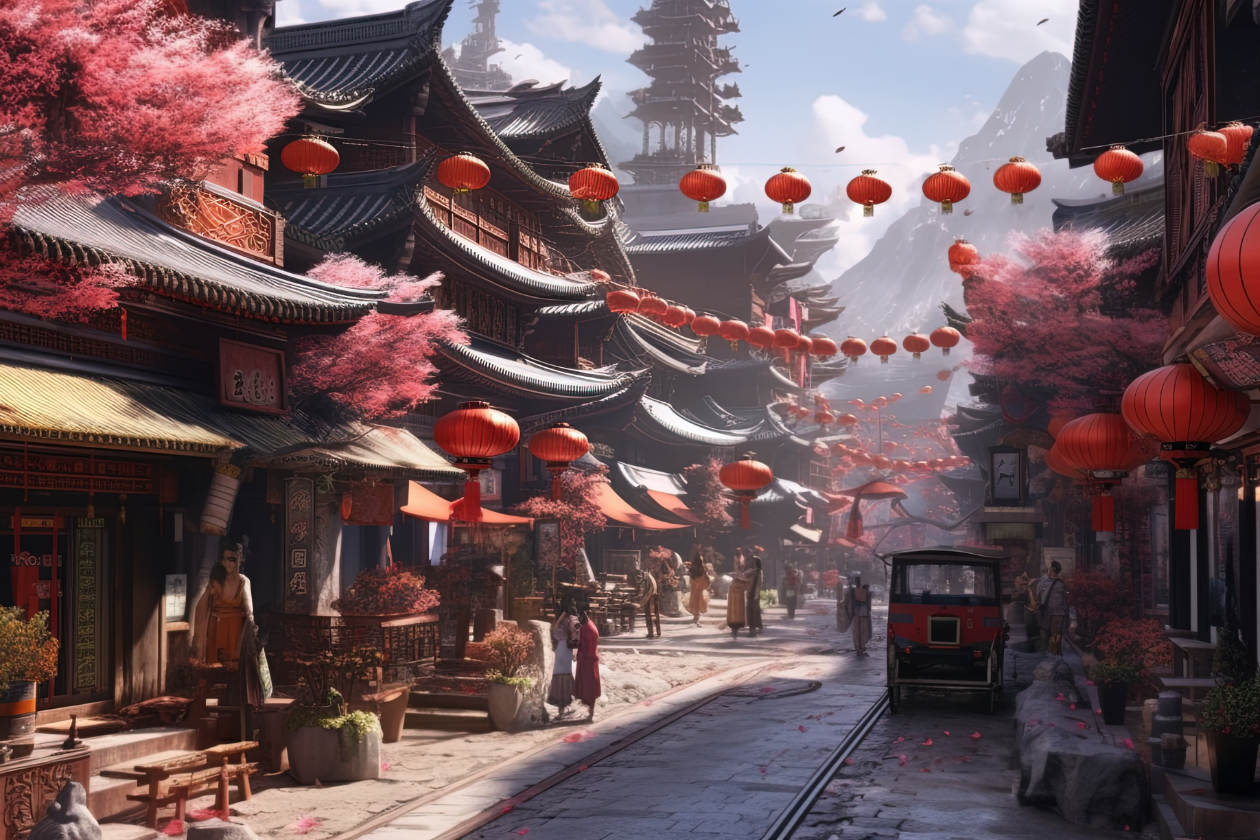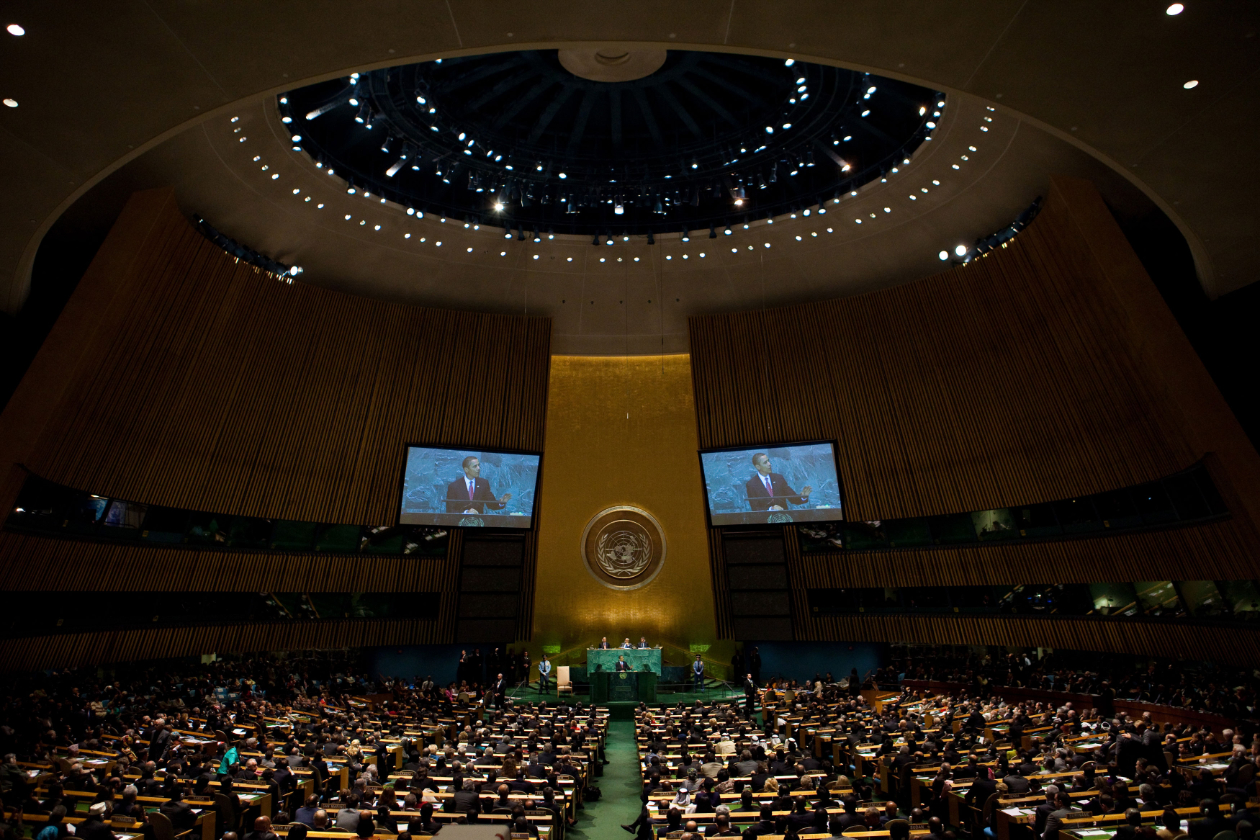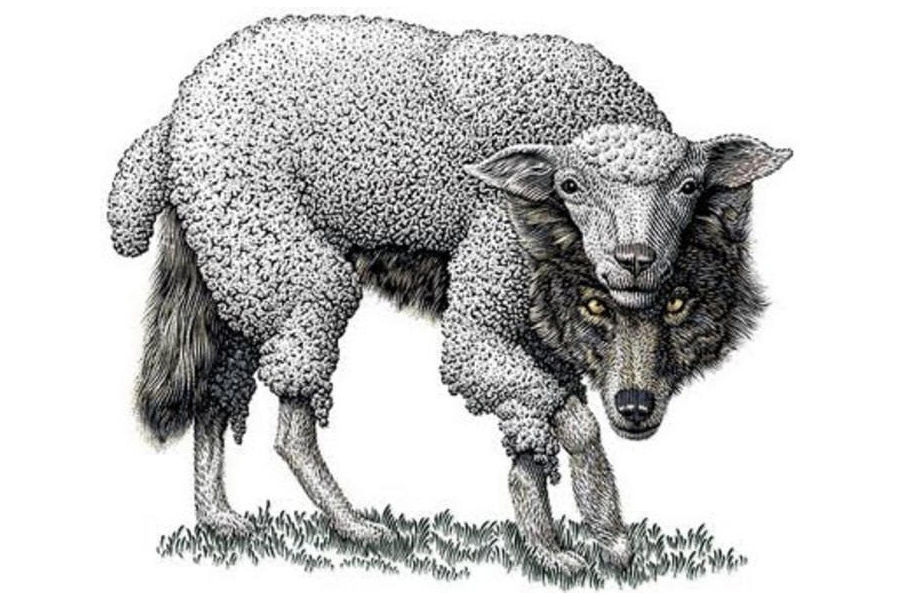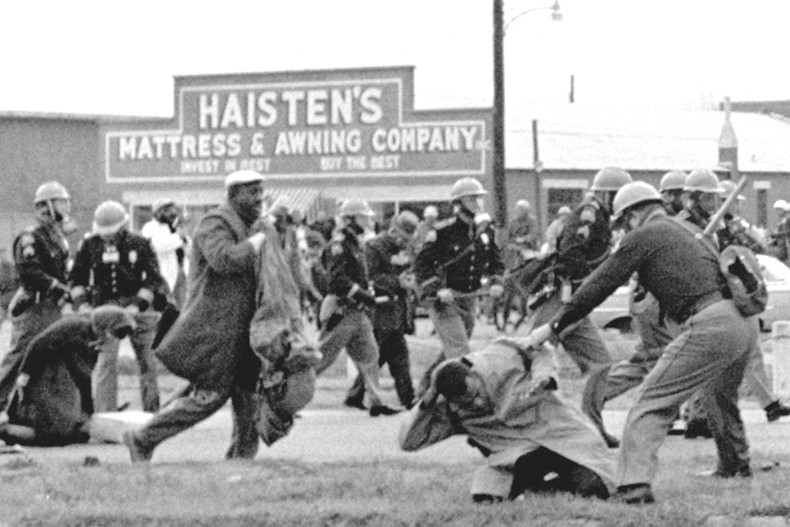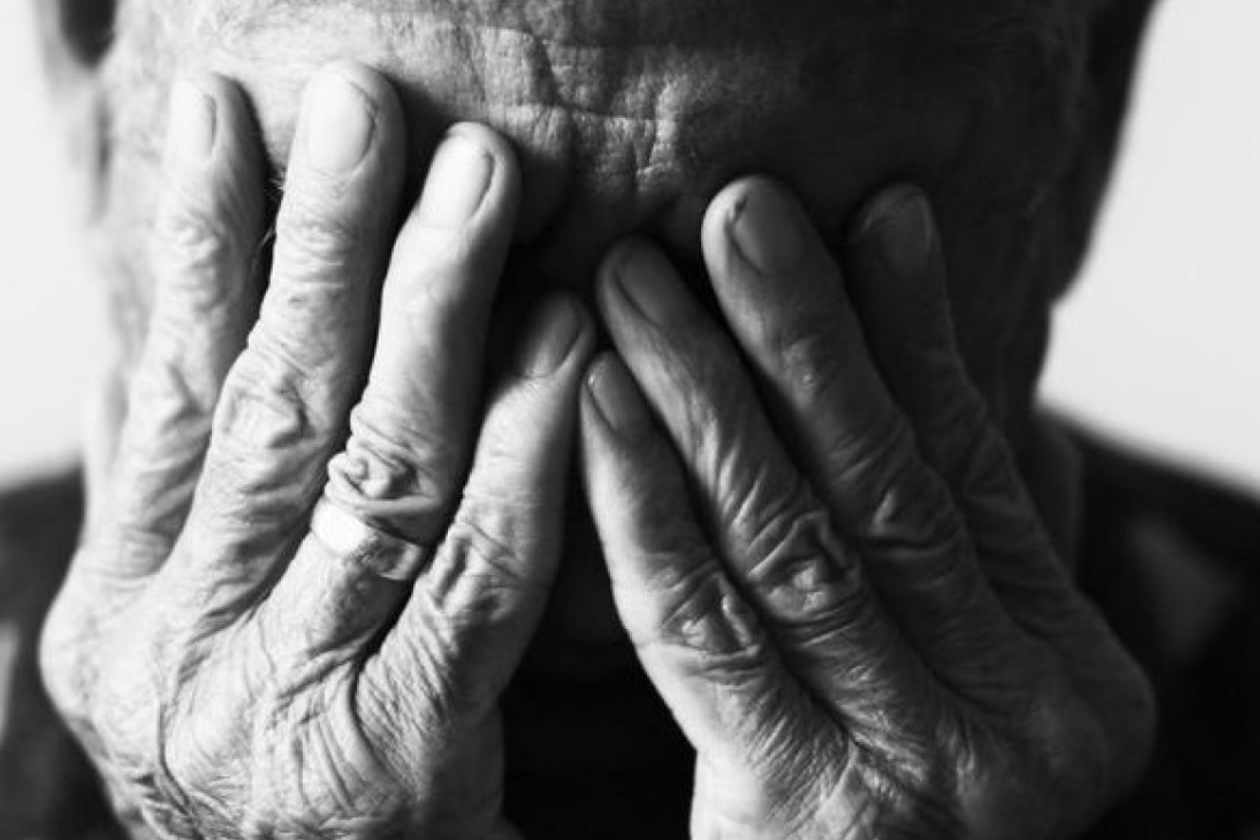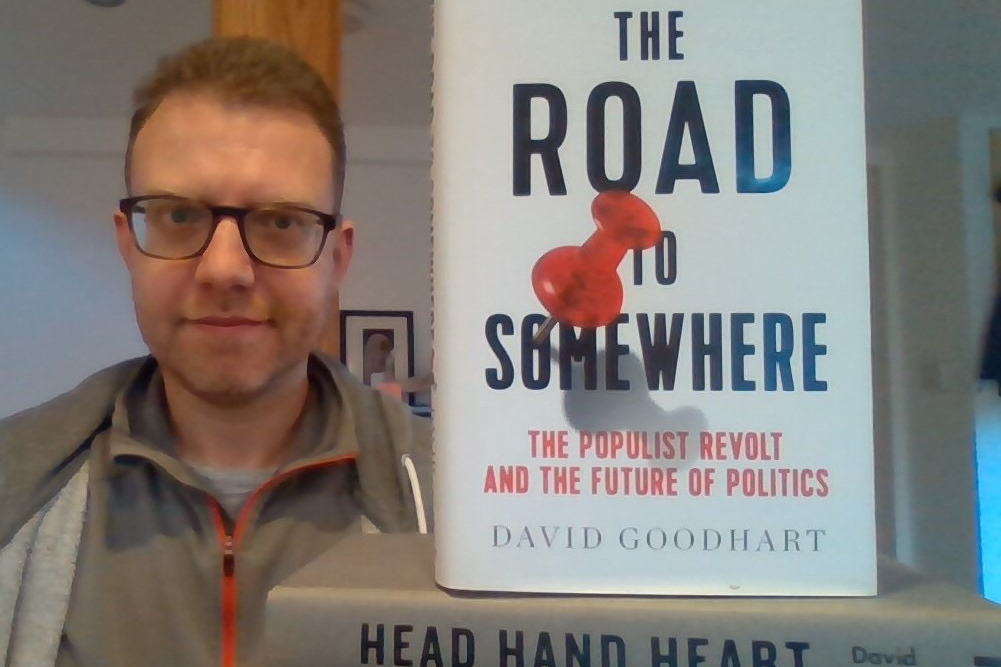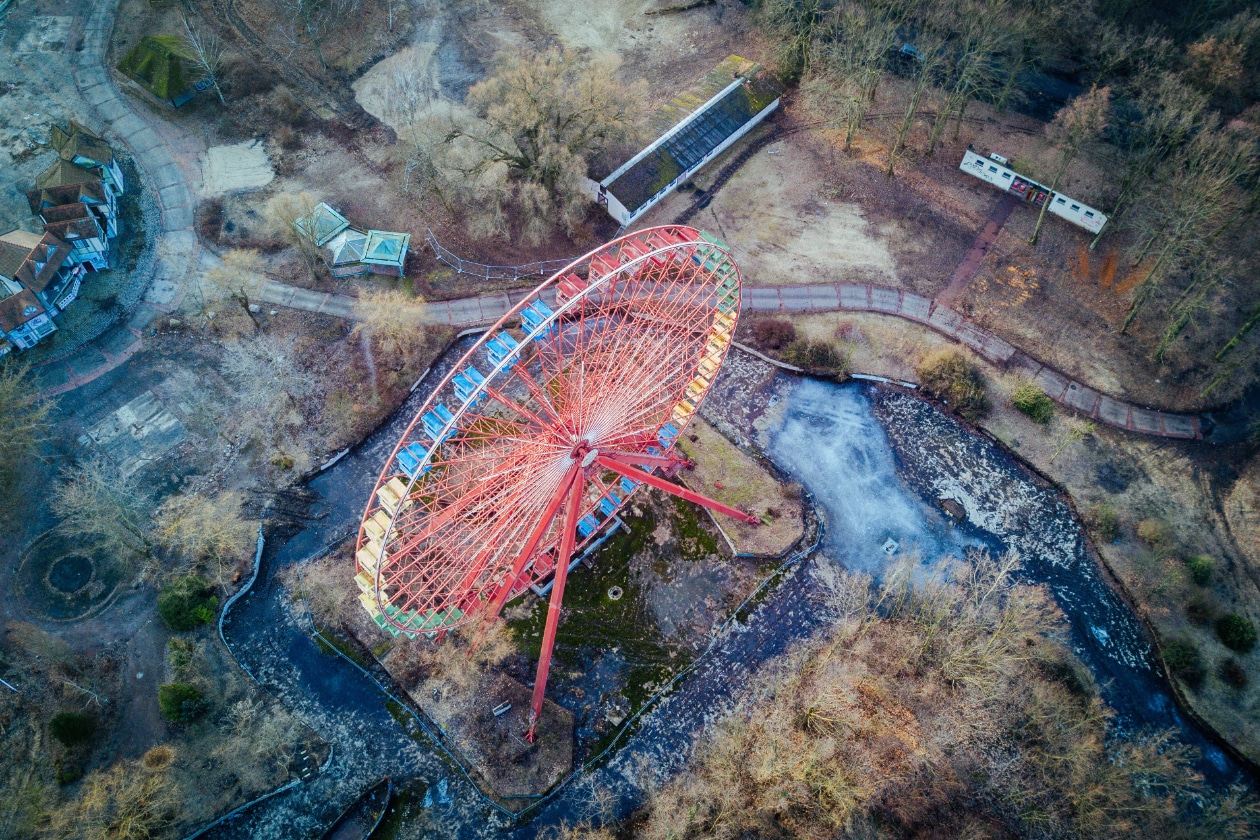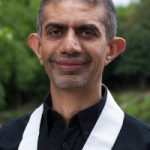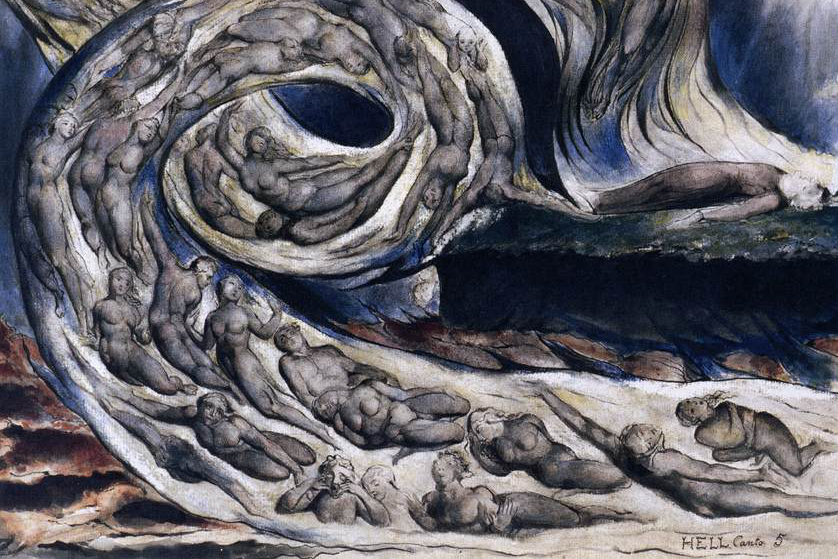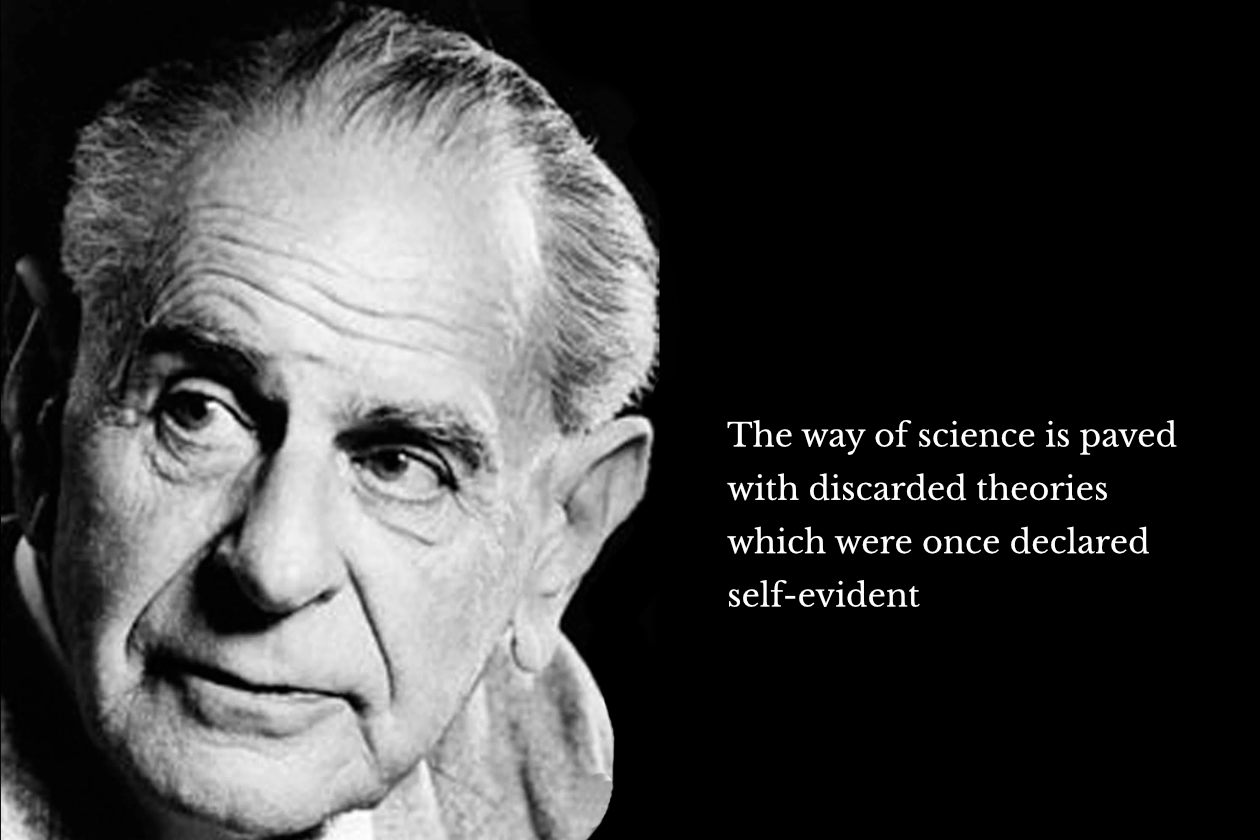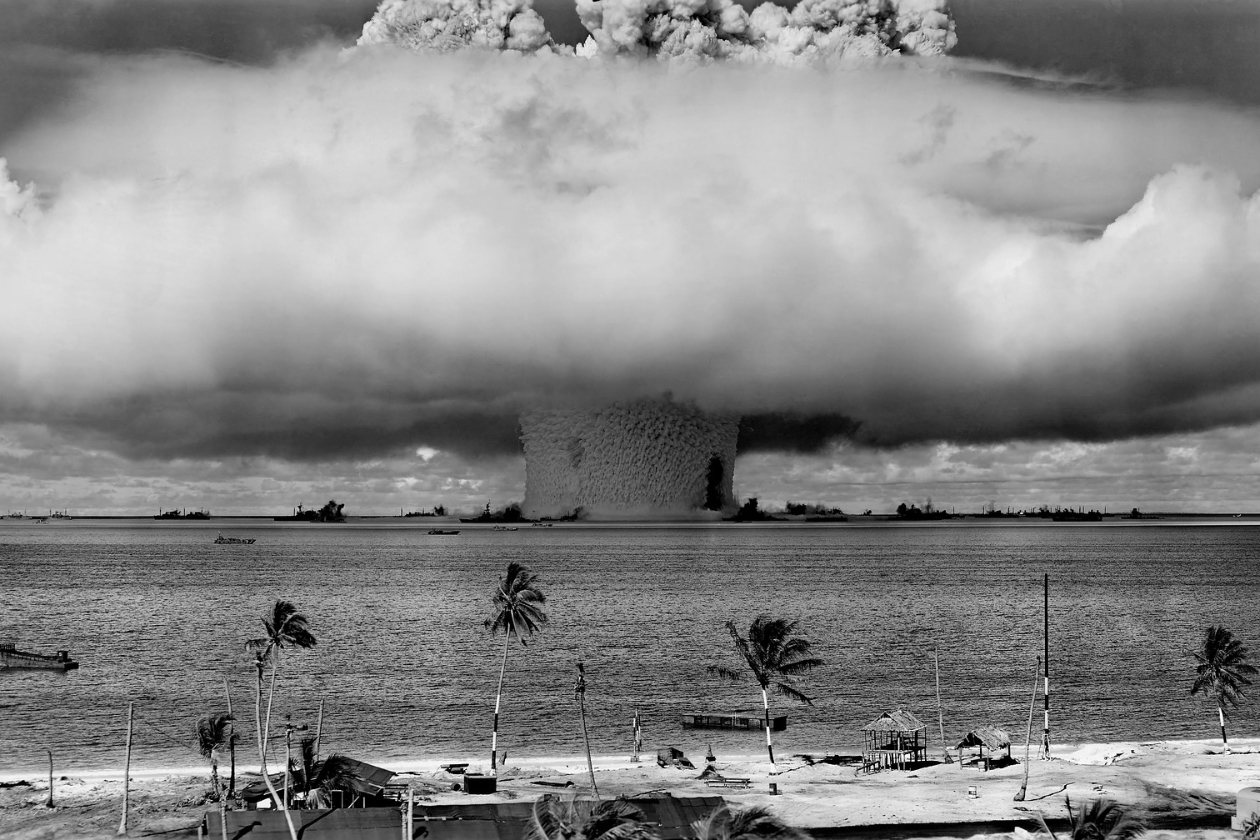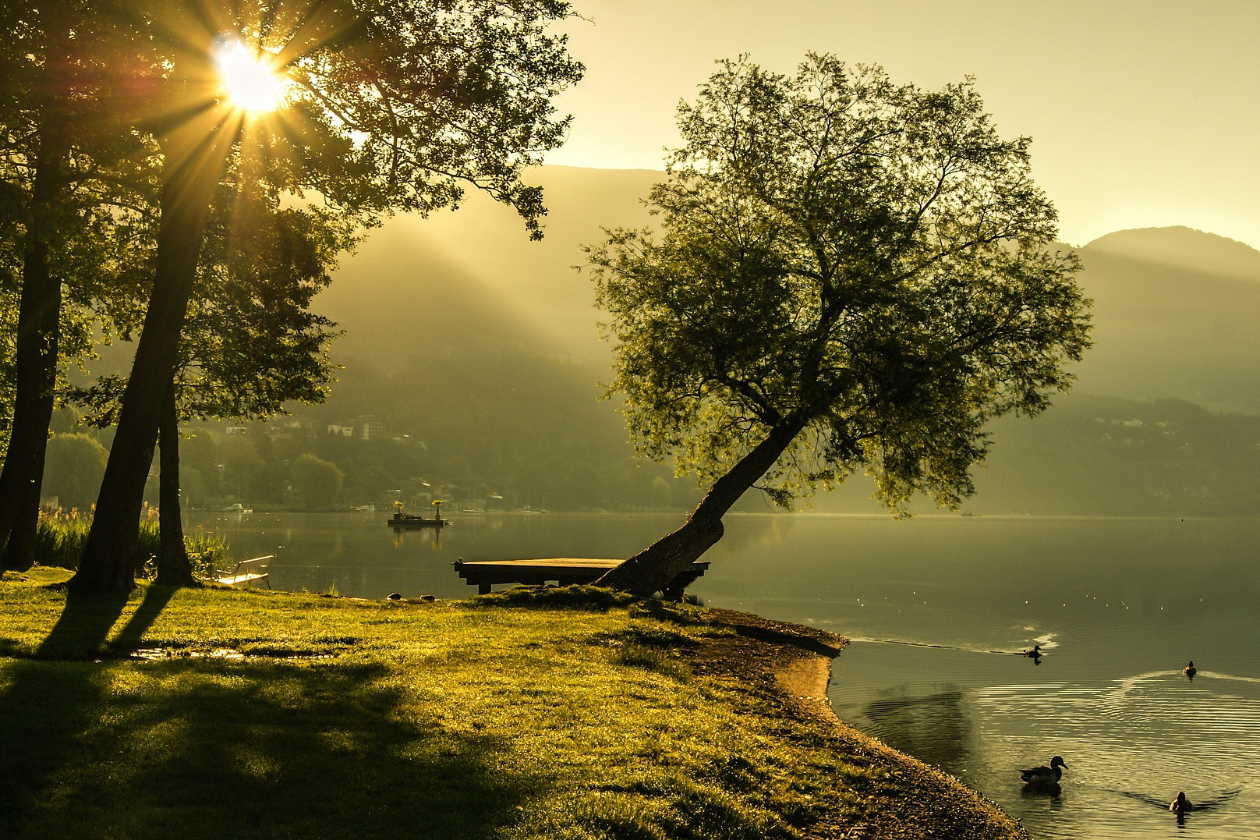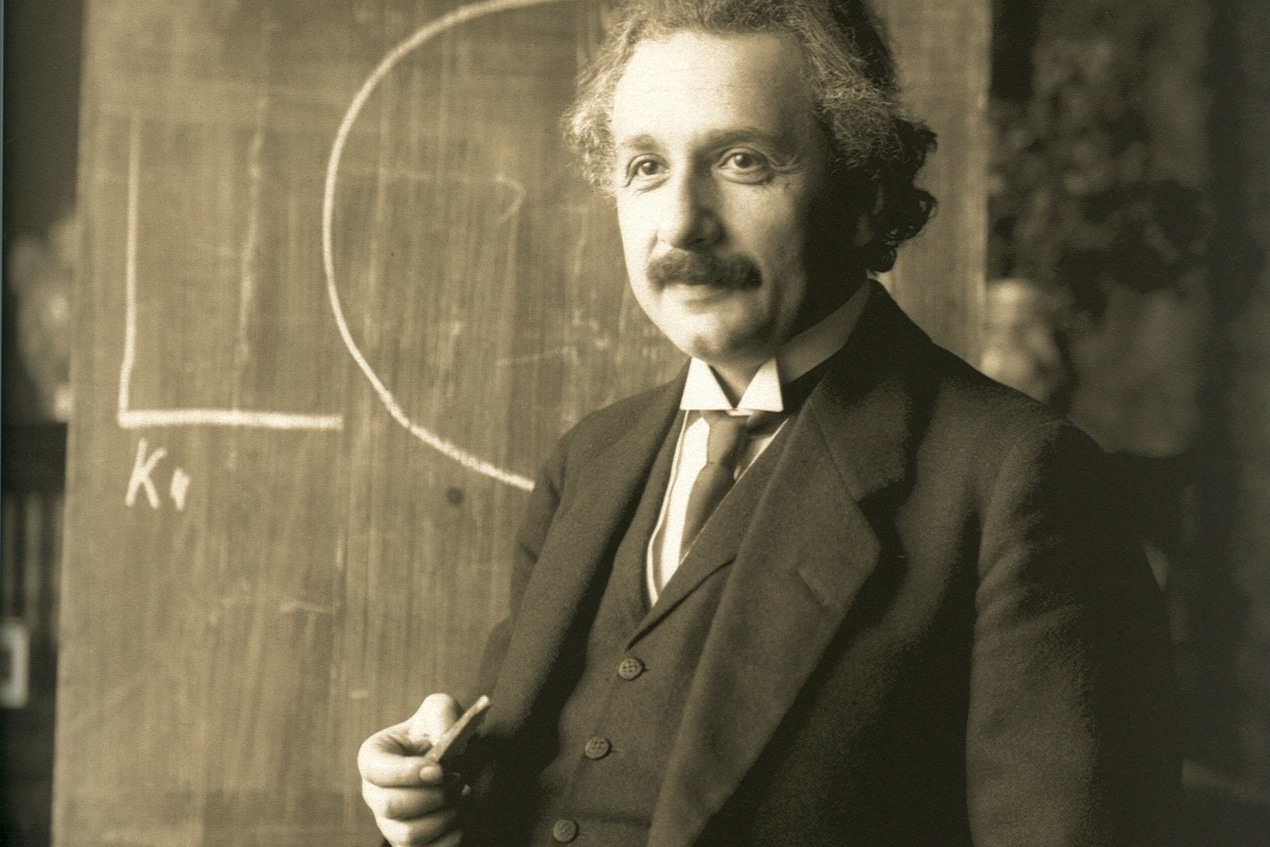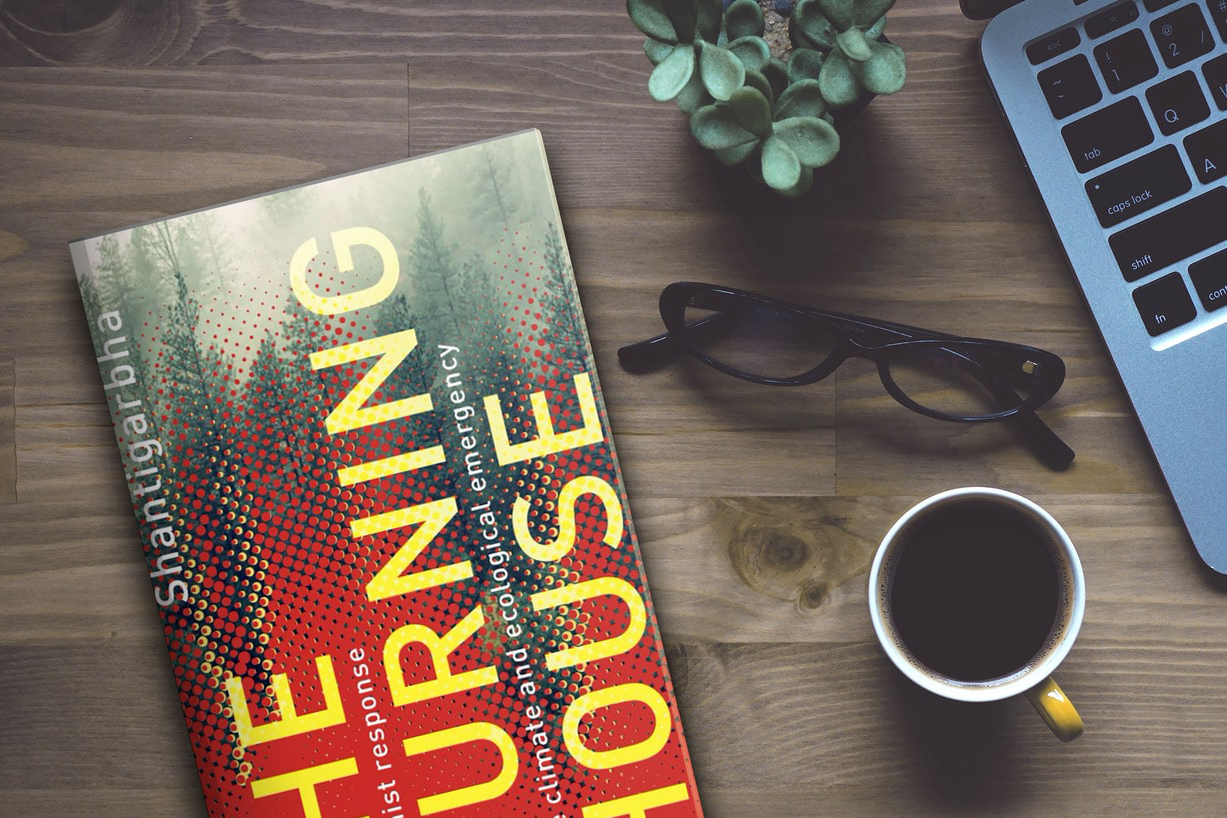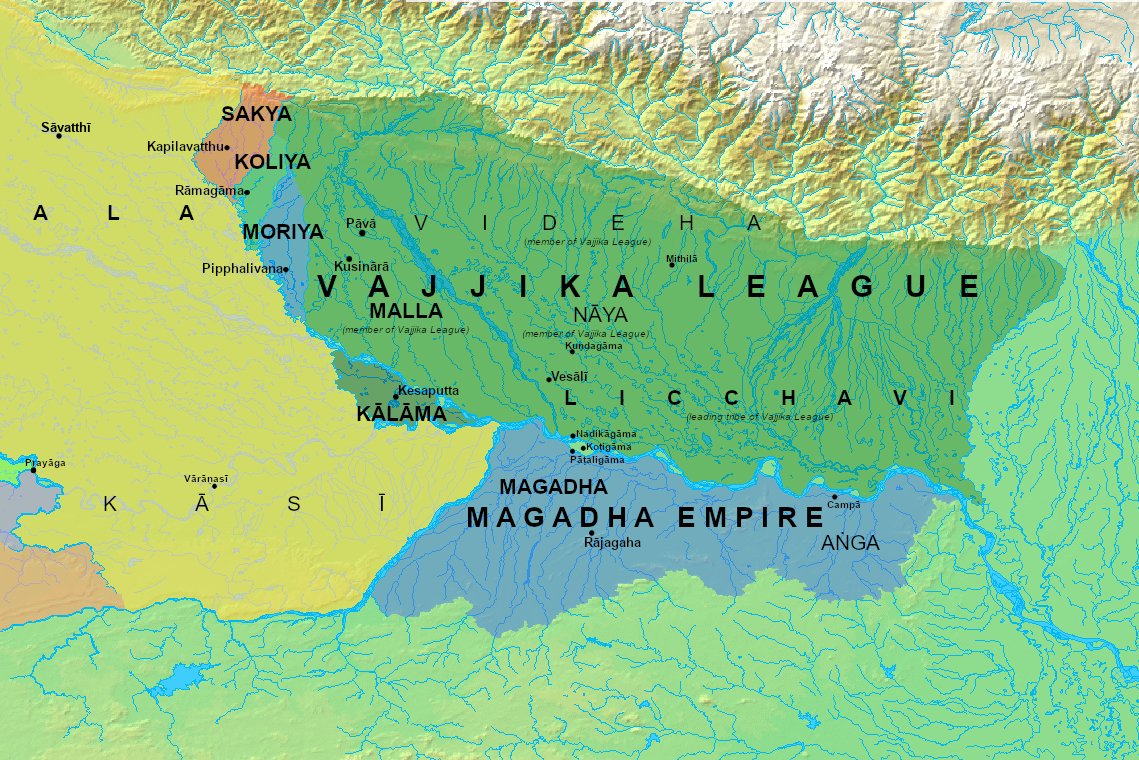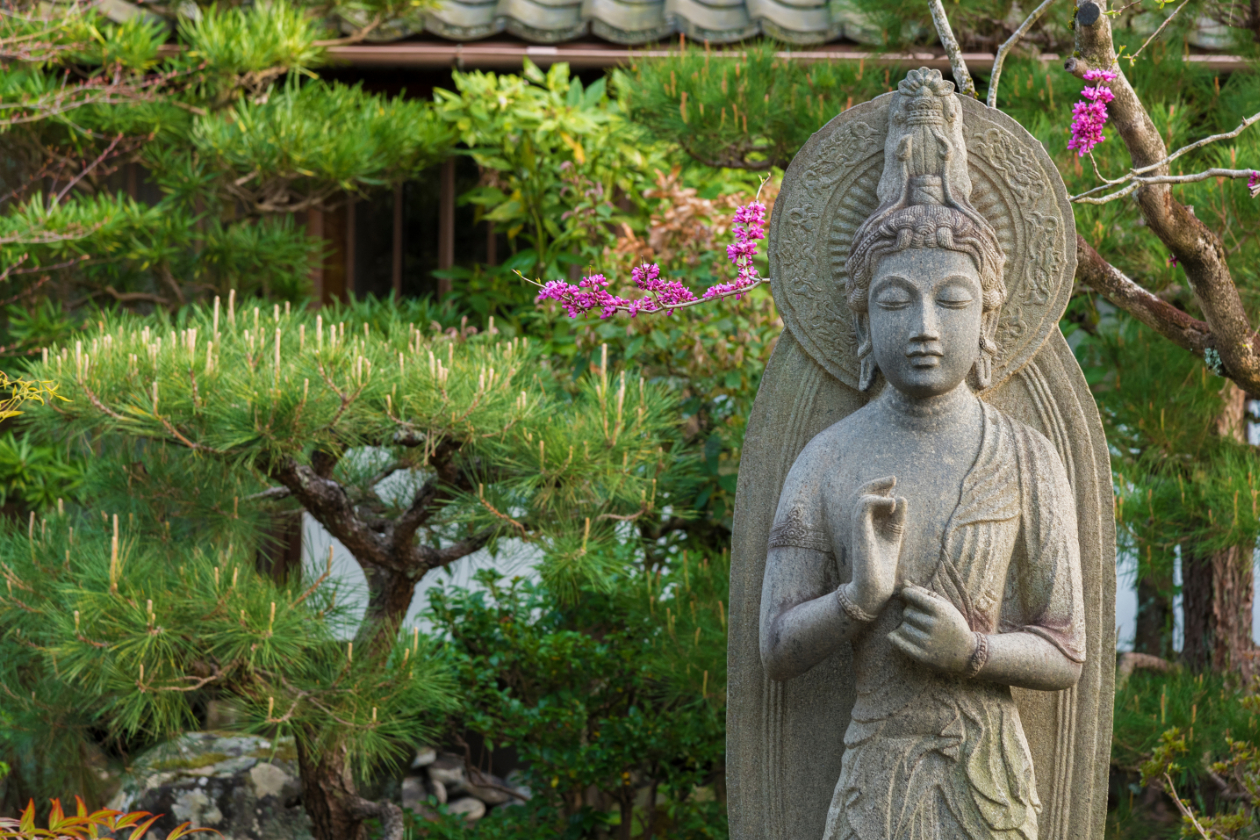A Few Thoughts on the Journey
Over three years ago, a group of friends and I came together with the aspiration of launching an online periodical — the very one you are reading now. What was on our minds? What inspired the project?
10 May 2024
Posted in: Buddhism
Quote of the week
William Collins, The Destructivists
Latest Articles
In this short reflection Advayacitta looks at the importance of psychology in caring for people who are physically ill.
Posted in: Psychology
A multi-faceted exploration of Sangharakshita's understanding of the relationship between Buddhism and science, especially his attempts to contain them both within a single unifying vision of existence.
The second in a series exploring what the Buddha said about society. In this one we look in detail about how, according to the Buddha, an empire should be ruled.
In the second of a series of short reflections on his work as a clinical psychologist, Advayacitta considers the process of projection.
Posted in: Psychology
Politics
Chapter 13 of The Destructivists by William Collins, in which he explains why 'Wokeism' has become dominant in all centres of power and authority.
Posted in: Politics
Chapter 10 of The Destructivists by William Collins, in which he explains why the 'elites' - the privileged, the established, the influential, the powerful - have most to gain from the imposed Moral Infantilism of society.
Posted in: Politics
Calls for 'Social Justice' seem to be getting shriller, and the demands made in its name stranger. Vidyaruchi explains what the terms have come to mean, where the ideas underlying their current use originated, and why they are so dangerous.
Posted in: Politics
Chapter 7 of The Destructivists by William Collins, in which he explains how supposed moral rectitude functions as a form of power.
Posted in: Politics
Psychology
In this, the first in a series of short reflections on his work as a clinical psychologist, Advayacitta considers the phenomenon of irrational guilt
Posted in: Psychology
Ratnaguna interviews Advayacitta about how recognising and transcending various patterns from the past is an important aspect of psychological and spiritual development.
Ratnaguna explains what a spiritual community is and is not, and makes a case for spiritual communities changing the world for the better.
Posted in: Psychology
Advayacitta, a clinical psychologist, explores how political ideologies can undermine psychological functioning, thereby harming individuals and whole societies.
Culture
Chintamani has been creating Buddhist images for Western Buddhists for 50 years. Ratnaguna asks him about his approach to this and, looking at seven of his paintings and sculptures, how his work has evolved.
In this very stimulating interview Thomas Hamilton-Shaw talks about two books by David Goodhart: The Road to Somewhere and Head Hand Heart. Tom is a friend of David and was his research assistant for the second book.
Posted in: Culture
Ratnaguna asks guitarist Nick Gauntlett about his love of progressive rock music, and what it has to do with his Dharma practice. We also hear some of the music he has recorded, including a song he wrote as part of a concept album on the Buddha.
Posted in: Culture
Maitreyabandhu is an award-winning poet, and in this illuminating interview he tells Ratnaguna about his latest volume of poetry, After Cézanne.
Posted in: Culture
Philosophy
Vidyaruchi considers the limitations of Popper's political thought, and argues that the liberalism that he espoused needs a framework of higher values such as is found in Buddhism.
In this interview - the first in the new series Books Worth Reading - Ratnaguna interviews Jñanavaca on The Master and His Emissary by Iain McGilchrist, and finds out why he thinks it is a book well worth reading.
Posted in: Philosophy
An account of Popper's thinking on politics, including his critique of 'historicism', his demolition of Marxism, and his own theory of how to bring about social change.
Posted in: Philosophy
Karl Popper is arguably one of the foremost philosophers of the 20th century. Here, Vidyaruchi considers his theory of scientific method, and attempts to formulate a Buddhist response.
Posted in: Philosophy
science
Advayacitta begins to explore the history of climate change politics. He investigates the cultural context within which preoccupation with global warming developed. It was a context notable for its intense fear of disasters.
In this article Advayacitta describes the process of how he came to alter his opinion about climate change.
Posted in: Science
In this second article on Buddhism and physics, Advayacitta explores an important parallel between Relativity Theory and the Buddhist doctrine of śunyata.
Posted in: Science
In ‘The Burning House’, a Buddhist shares his Dharma insights, promising practical resources for those moved to respond to a perceived climate emergency. This review explores the author’s depiction of the problem, and his solutions.
Posted in: Science
Buddhism
A multi-faceted exploration of Sangharakshita's understanding of the relationship between Buddhism and science, especially his attempts to contain them both within a single unifying vision of existence.
The second in a series exploring what the Buddha said about society. In this one we look in detail about how, according to the Buddha, an empire should be ruled.
A commentary on the seven principles the Buddha gave to the Vajjika League, saying that, if followed, would prevent its decline and assure its growth and prosperity.
Urgyen Sangharakshita explores the idea that ethical actions are not only good, but also beautiful, and so consequently, an ethical life is a beautiful life.
Posted in: Buddhism
Articles
Whole societies can split into mutually unintelligible ‘tribes’.
A conversation on the series 'A Good Heart is not enough'.
A Buddhist response to Karl Popper’s theory of scientific method.
This review explores ‘The Burning House’, a response to a perceived climate emergency.
Advayacitta interviewed about the importance and meaning of music in general, and in particular of the chanting of mantras.
In this second article based on his celebrated 'Eros and Beauty' talks, Subhuti examines the nature of aesthetic experience.
Ratnaguna argues that if someone gives offence you don't have to take it
Are black lives 'systematically and intentionally targeted for demise' by the police?
What is the root of our suffering and how can it be quenched? What did the Buddha discover?
The second part of Vidyaruchi's series on A Survey of Buddhism.
Aryajit interviews Ratnaguna on Walking with the Wind by the Civil Rights activist John Lewis
Ratnaguna interviews Advayacitta about the nature of consciousness, and how this relates to the question of rebirth.
Ratnaguna asks guitarist Nick Gauntlett about his love of progressive rock, and what it has to do with his Dharma practice.
This article is intended for those who are curious about Buddhism but as yet knows little about it.
Thomas Hamilton-Shaw talks about two books: The Road to Somewhere and Head Hand Head Hand Heart.
A commentary on the seven principles the Buddha gave to the Vajjika League
Silavadin discusses the materialist view of evolution and, following the philosopher Thomas Nagel.
In this article Ratnaguna makes a case for spiritual communities changing the world for the better.
Another short Dharma essay, Gotama, Mole, and the Wild Wood.
his work as a clinical psychologist, Advayacitta considers the process of projection.
The importance of Buddhists transcending political ideologies.
What is ‘racial equality’? What should Buddhists make of it?
The first article in a series on Sangharakshita's magnum opus A Survey of Buddhism.
In this short but powerful piece Nagapriya argues that gratitude is transformative.
Vidyaruchi argues Popper's political thought needs a framework of higher values such as is found in Buddhism.
Advayacitta begins to explore interesting parallels between two core Buddhist principles, and modern physics.
When a tyrannous regime invades a peaceful country, what is the most ethical course of action?
Advayacitta begins to explore climate change politics, looking at the cultural context in which fears about climate developed
Ratnaguna marks Apramda’s first year by discussing why the objective truth is crucial for the health of society
The powerful have most to gain from the imposed Moral Infantilism of society
Urgyen Sangharakshita explores the idea that ethical actions are not only good, but also beautiful
Ratnaguna looks at instances from ancient texts of the Buddha debating, and draws out lessons that we can learn from him.
Apramāda has been accused of trying to 'delegitimize and derail racial justice work'.
This is the first in a new series we're calling Thus Have I Heard: Brief Essays on Buddhism.
Cass Sunstein argues that groups, and society, need dissenters to prevent them from making bad decisions.
Why the Modern Left Loathes the Working Class
Vidyaruchi explores what 'Social Justice' has come to mean.
Subhamati takes a closer look at Stephen Batchelor's Tricycle article on Brexit.
The Buddha was aware of the dangers of engaging in debates, and he had some observations about how to conduct discussions.
Ratnaguna and Advayacitta discuss aspects of Buddhism and psychological therapy - their similarities and differences.
How can we really know anything, and how often are our opinions based on a lack of real knowledge?
Political ideologies can undermine psychological functioning.
Advayacitta explores how decision making in health care has been increasingly taken away from clinicians and their patients
Advayacitta describes the process of how he came to alter his opinion about climate change.
Maitreyabandhu's latest volume of poetry, After Cézanne.
Ratnaguna asks Chintamini about his approach to creating Buddhist images for Western Buddhists
Devamitra's account of his treatment of prostate cancer. Inspiring, and thought-provoking.
Subhuti explores the pursuit of beauty as a spiritual path. Part 1 of 2 parts.
In this article Ratnaguna makes a case for spiritual communities changing the world for the better.
Vidyaruchi examines Popper's thinking on politics, his critique of 'historicism' and his demolition of Marxism.
A multi-faceted exploration of Sangharakshita's understanding of the relationship between Buddhism and science.





